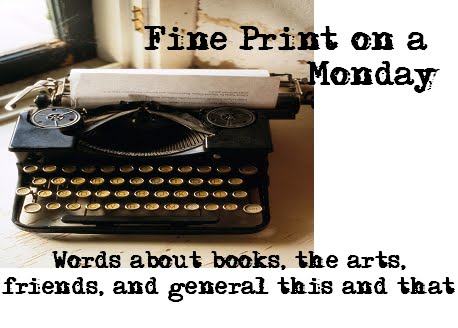
Those galley copies just keep rolling in. Each day, two or three arrive from individual publishers, and once a month, I get a huge box of them from one of my trade associations. Last week, this short story collection by Laura Lippman turned up so I figured it was time to give her a try.
I love short stories. While others were reading Hemingway's For Whom the Bell Tolls, I was entrenched in his Nick Adams Stories. No Scarlet Letter for me. Instead, there were the Tanglewood Tales. Hawthorne's "Young Goodman Brown" still figures high on my list, so full of mystery, veiled evil, and desperate goodness. His ss style is less formal than his novel approach, so they are sneekily didactic, instead of blantatly so.
Nothing, nothing, nothing tops "Bartelby the Scrivener" for me. That short story, - well, if I am to be accurate I'd call it a novella - was so perfect, that I was never tempted to tackle any of Melville's other work. Bartelby came into my life quite by mistake while reading Emerson, the most perfect of all essayists. The book's forward intimated that Emerson's quintessential piece, "The Transcendentalist" had inspired Melville to write "Bartelby" That was all I needed to send me off to the Manitowoc Public Library where I picked up a Melville ss collection in mint condition, although the pub date was the mid-50's. There were also multiple perfect copies of Moby Dick on the shelf. Also basically unread. Apparently, at that point in time, readers had abandoned the classics for hipper titles by guys like Richard Brautigan (Trout Fishing in America), and subversive offerings such as Burn this Book by Abbie Hoffmann. No matter. I had the book all to myself, with total confidence that there would not be a waiting list in the event that I needed to renew.
Bartelby is a scrivener, a copyist, in a London law office. He wanders into the office, applies and gets a job. He is quiet, odd, secretive, and emotionally paralyzed. When asked to perform any work duty, he simply says "I prefer not to." For some reason, the rest of the employees just work around him. Bartelby becomes a fixture in the office - another desk, or chair. Eventually, he stays on after the office close, living there rather than taking the risk of going out into the world filled with expectations. I am sure that Bartelby is the archetype that morphed into Didi and Gogo in Waiting for Godot by Samuel Beckett. "Bartelby the Scrivener" is witty, poignant, sentimental and scary. Melville's language is properly formal, and his symbolism, brilliant.
Years after discovering this story, I decided to sneak it into the American Lit class I was teaching - a class filled with eager junior boys and girls! I was ready for groans. I anticipated the pleas to be spared reading the long, long, long short story. My standard speech went something like this: "This is my favorite story, and if you know what is good for you, it will be your favorite, too. Anyone who feels otherwise is welcome sink your teeth into this," at which point I did my best Vanna White impression holding up a huge copy of Moby Dick. Using a large print edition magnified the horrifying possibility of having to read it.
Bartleby has stuck with me, resulting in my personal homage to Melville. The protagonist in my never to be finished novel is named Moby. The name works better than Bartleby, and the symbolism will be evident if I ever get to a final draft.

I figure that a love of short stories should be part of our collective unconscious. Didn't our parents read little stories to us each night before bedtime? Didn't we all check out the maximum number of story books allowed per week at the library? I remember putting librarians to sleep with my unedited verbal summaries of each book, just so I could get a stamp on my summer reading record sheet. In those days, I couldn't read enough Flicka, Ricka and Dicka books. This was a series of treasured books by Swedish author-illustrator Maj Lindman (1886-1972). She also wrote and illustrated stories about three little Swedish boys named Snipp, Snapp and Snurr.
Well, now, what about that Lipmann book? I'm not sure how to classify it. The stories are mainly mystery. The plots are clever, and the endings are always unexpected, although at times a little too O'Henry-ish for me. Most fall into the "fiction for angry women" genre. As I finished each story I decided that enough was enough. I understood Lipman. I had done my professional duty and sampled her wares. I set the book down and walked away, fully intending to return to the "real" book I was working on. In short order, the Lipman book was back in my hands, and I polished off another story or two. Darn. This book is addicting and Lipman knew it would be. I have no doubt that's why she titled the first story in this sassy collection "The Crack Cocaine Diet"
